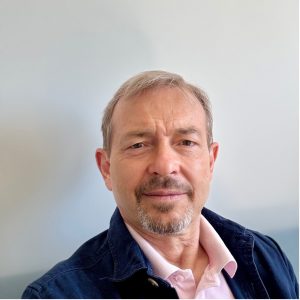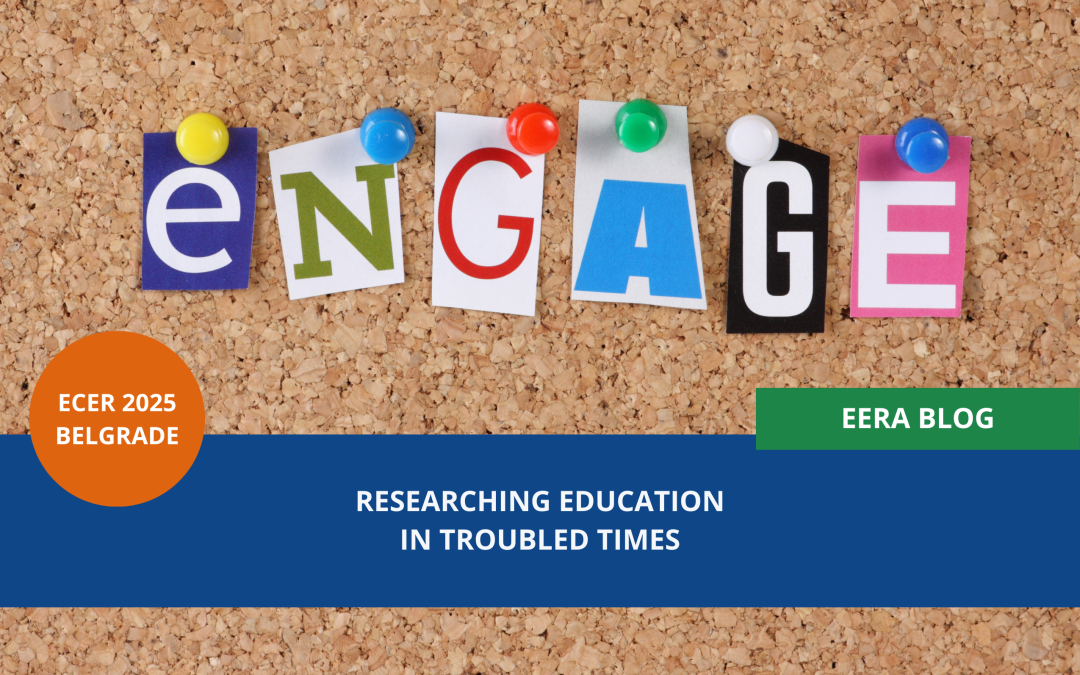As we prepare to gather in Belgrade for ECER 2025, I find myself reflecting on what it means today to be a researcher in education. ECER has always been a powerful space of convergence — a moment when ideas circulate freely across borders, when educational issues are discussed in their complexity, and when we are reminded that research is, in essence, a public act.
This year’s theme, “Charting the Way Forward: Education, Research, Potentials and Perspectives”, resonates deeply in the moment in which we are living. Across Europe and beyond, we are witnessing social and political tensions that question not only the role of education, but also the very conditions under which we produce knowledge. In Serbia, where the conference is taking place, students are rising — peacefully and courageously — to demand accountability, transparency, and the respect for democratic values. Their actions, which have earned them a nomination for the 2025 Nobel Peace Prize, have been acknowledged in an open letter published by EERA in June, expressing solidarity with their commitment to democratic ideals and civic engagement. Their mobilisation has been exemplary, and it reminds us that the university can still be a place of critical hope and civic engagement.
In such a context, our research in education cannot remain indifferent. Whether we are exploring how students learn, how teachers adapt, or how systems evolve, we are also implicitly — and sometimes explicitly — questioning how education contributes to democracy, justice, and human dignity.
My own work, focused on educators’ professional development and digital literacy, has been shaped by this conviction. For instance, I have been involved in the development and implementation of the French national certification platform écri+, which supports students’ academic writing skills across universities. I also contributed to the organisation and facilitation of a hackathon held in Lyon in early July 2025. This event brought together researchers, students, and digital practitioners to explore how generative AI is reshaping scientific writing and academic literacies. These initiatives reflect a core belief: writing is not merely a technical skill, but a deeply reflexive and formative practice. It is a way of thinking, of situating oneself, and of constructing meaning in a changing world. At ECER, I will be presenting research that links writing practices to reflexivity and social engagement — drawing on collaborative work conducted in France and beyond.
I look forward to sharing this work and, more importantly, to engaging in the conversations that will undoubtedly emerge in Belgrade — with fellow researchers, students, and all those who believe that education is more than a field of study — it is a force for transformation.

Dr Philippe Gabriel
Université d’Avignon
Philippe Gabriel is Associate Professor (Maître de conférences hors classe) in Educational Sciences at Avignon Université, and researcher at LIRDEF (Laboratoire Interdisciplinaire de Recherche en Didactique, Éducation et Formation), jointly supported by the universities of Montpellier and Montpellier Paul-Valéry. His research focuses on academic literacies, digital learning environments, AI in education, and adult education. He has coordinated several national and European projects and co-leads the EERA Network 16 on ICT in Education and Training.
ORCID: 0000-0002-9337-572X
Research Lab: https://lirdef.edu.umontpellier.fr
OpenEdition (editorial role): Éducation et Socialisation (https://journals.openedition.org/edso/)
08 - 09 September 2025 - Emerging Researchers' Conference
09 - 12 September 2025 - European Conference on Educational Research
Since the first ECER in 1992, the conference has grown into one of the largest annual educational research conferences in Europe. In 2025, the EERA family heads to Serbia for ECER and ERC.
In Belgrade, the conference theme is Charting the Way Forward: Education, Research, Potentials and Perspectives
Emerging Researchers' Conference - Belgrade 2025
The Emerging Researchers' Conference (ERC) precedes ECER and is organised by EERA's Emerging Researchers' Group. Emerging researchers are uniquely supported to discuss and debate topical and thought-provoking research projects in relation to the ECER themes, trends and current practices in educational research year after year. The high-quality academic presentations during the ERC are evidence of the significant participation and contributions of emerging researchers to the European educational research community.
By participating in the ERC, emerging researchers have the opportunity to engage with world class educational research and to learn the priorities and developments from notable regional and international researchers and academics. The ERC is purposefully organised to include special activities and workshops that provide emerging researchers varied opportunities for networking, creating global connections and knowledge exchange, sharing the latest groundbreaking insights on topics of their interest. Submissions to the ERC are handed in via the standard submission procedure.
Prepare yourself to be challenged, excited and inspired.

